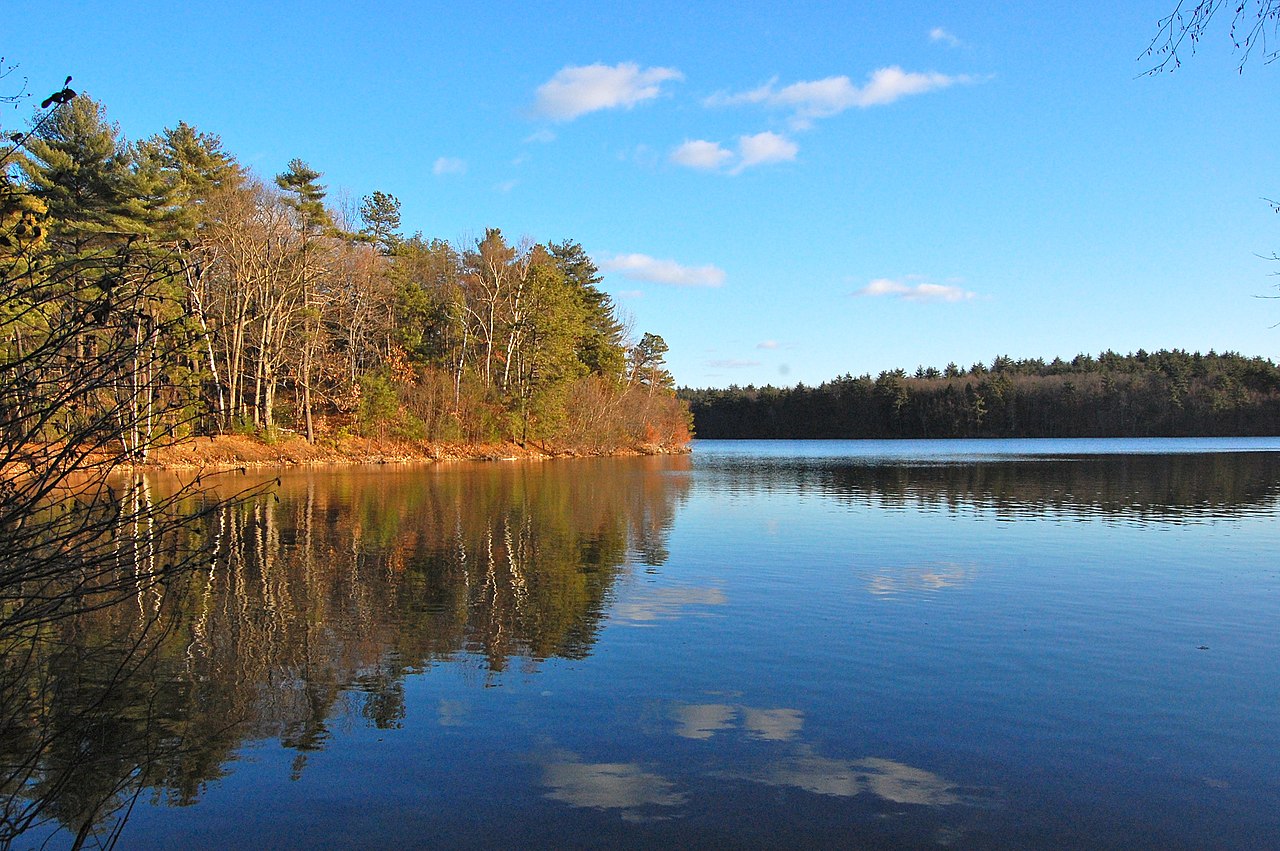Walden is a beautiful pond in Concord, Massachusetts. Henry David Thoreau spent two years on the edge of the pond. He built a house there, did his own farming, enjoying the winters and summers, and of course, did a lot of reading and writing. The bookWalden is an account of this two-year experience.

Thoreau is well known as a writer, philosopher, poet, and a naturalist. While reading the book, not only do you notice these qualities, but there are others that come to the fore. An important difference between most philosophers and Thoreau is that Thoreau walked the talk. When he was working in his father’s pencil factory, he researched and obtained a patent for a pencil. The pencils made accordingly were popular for many years under the name ‘Thoreau Pencil.’ In Walden‘s first half, Thoreau talks at length about how to build a house and what crops to grow. He gives a detailed account of how much it cost to build the house, how much was recovered from the crops and how much remained.
One reason why Thoreau decided to stay away from everyone, out of town was that he wanted to see the arrival of spring up close. Walden would freeze in the winter. There was a layer of snow all over the pond. Then, on a morning in March or April — or an evening — you would hear the first song of the Robin.
I looked out the window, and lo! where yesterday was cold gray ice there lay the transparent pond already calm and full of hope as in a summer evening, reflecting a summer evening sky in its bosom, though none was visible overhead, as if it had intelligence with some remote horizon. I heard a robin in the distance, the first I had heard for many a thousand years, methought, whose note I shall not forget for many a thousand more—the same sweet and powerful song as of yore.
In today’s day and age, the definition of scholarship has changed. 170 years ago, when it was a struggle even to figure out what was going on in a neighbouring village, Thoreau refers to The Vishnu Purana, The Bhagavad Gita and Vedanta. And while reading you realize the deep introspection that has gone on behind these reflections. It is this scholarship and intense thinking that gives rise to timeless quotes like “The universe is wider than our views of it.”
It’s natural to recommend a book when you like it, but I doubt how many people will like Walden these days. Walden’s style is somewhat old-fashioned. So on occasion, you have to deal with long sentences that run through the pages, words from Old English, unfamiliar names of birds, leaves, flowers.
Thoreau’s activities provide a glimpse of his limitless curiosity. After hearing that Walden’s depth was limitless, Thoreau himself measured the depth of the pond by boat. He spent hours observing nature on Walden’s banks. Sometimes, he admitted without hesitation that he had done nothing for the rest of the day. At other times, he ploughed through miles of snow because he had a meeting with a tree.
Thoreau is often associated with the American Renaissance movement in literaure along with great writers like Emerson, Walt Whitman and Herman Melville. Walden is a difficult read and you may not agree with some of it but it often forces you to pause and think. And you also get a glimpse of one of the great minds of the past.



